Melford Vincent: Kick the notion that two things don’t go together

[bctt tweet=”I have great aspirations for my brand & I hope to see it throughout Africa” username=”SheLeadsAfrica”] There is nothing as gorgeous as having glowing melanin with the kink and curls that come with it. Yes, I’m talking about the beauty of African hair. Most of us however, feel compelled to straighten our hair so that we fit in easily. While doing up our hair and getting extensions is not a bad thing, all I’m saying is that it’s still important to maintain that natural and just be naturally unbothered! Melford Vincent a 21-year-old Sierra Leonean lady who is pursuing a degree in Law struggled with badly damaged hair for a long time. She had a hard time with it but through extensive research, she finally found the most effective herbal remedy for African hair. Melford formulated this herbal hair remedy into the I-GRO hair recipe that works wonders for African hair. It helps with hair moisture and the acceleration of hair growth. I-GRO ingredients are all acquired locally from the markets of Sierra Leone and currently it’s one of the main brands leading in the hair community of her country. This is evident in the young women, children and young men that are getting hair breakthroughs through its use. Unbelievably this young #Motherland Mogul started her business with less than $10, making just a few for friends and using the little profits to produce more. To date Melford has made over a thousand products, developed her brand through her smartphone and notepad and now she is looking into hiring staff. I had the opportunity to talk to this goal getter and this is what she had to say. Why do you think the natural hair community is small in Sierra Leone? The natural hair community in Sierra Leone is a small one but it keeps growing from time to time. Most Sierra Leonean Women don’t practice safe hair practices they prefer throwing on a wig or other hair extensions, so they see little or no need to care for their natural hair underneath. Most of us have been conditioned to believe that natural hair is bad and need to be tamed with relaxers. How long do you think it will take to convince the African woman to embrace the texture of their natural hair? I think with the growing trend of the natural hair movement, most African women are coming to terms with it and embracing their natural hair, although some may need extensive schooling and persuasion so as to even give going natural a thought. There are quite a number of hair products for African hair and most women have been disappointed by most of the results. How do you assure someone who has never used l-GRO that it’s different? Through experience, most of the products allegedly made to cater for African hair needs don’t necessarily work for African hair effectively. Reason being that in most cases the African climate was not in mind when these products were formulated. The African climate is a harsh one, with excessive heat, humidity and dry winds in the harmattan, I-GRO bridges that gap. It was formulated, to perform perfectly in an African climate, balancing the hair moisture and not leaving a greasy feeling. The product likewise works for other climates and colder weathers because of its potency. There are over a hundred people talking about your product on Facebook. What are your strategies to multiply this number? I-GRO is fast becoming the most sought after hair solution in Sierra Leone and it has also been spreading to neighboring countries like Liberia , Guinea, Ghana, Nigeria etc. I am working daily to develop my social media following, which is growing substantially daily. How do you manage your time since you are a student and at the same time you run your business? I am still trying to find a balance, as it is actually not easy. For now I make sure I manage my time well. I don’t procrastinate. And I make sure to produce a lot of products at a time so I don’t have to be doing it every now and then. I am thinking of hiring as the business is fast becoming too big for me to handle alone. [bctt tweet=”Melford Vincent says, There’s nothing wrong in starting small.” username=”SheLeadsAfrica”] What advice would you give a young you? I would tell them, to kick the notion that two things don’t go together. They sure do, and you can start building your dream, no matter how old you are. There’s nothing wrong in starting small, you don’t need to break the bank to start a business. I started mine with less than $10. If you’d like to share your story with She Leads Africa, let us know more about you and your story here.
Carol Bangura: Operating a non-profit organisation and empowering girls
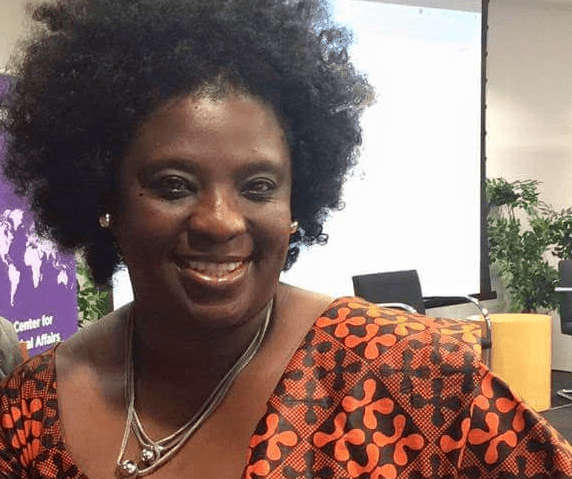
[bctt tweet=”Top skills you need to run a non-profit org from Carol Bangura, award-winning advocate” username=”SheLeadsAfrica”] Carol Bangura is an educator, advocate, philanthropist, and a published author. Carol’s professional experience includes creating culturally and linguistically appropriate education and social integration programs in the Greater Philadelphia. She’s done this for diverse immigrant and refugee women and children from countries including, but not limited to Sierra Leone (her country of birth), Liberia, Haiti, Ghana, Turkey, China, Jamaica, Mexico, and Iraq. Carol has created education initiatives for girls exposed to school related gender-based violence (SRGBV) in Sierra Leone. As someone who has worked in the non-profit sector, Carol is open to providing insight to others. Here are key takeaways from Carol Bangura’s experiences in the non-profit sector. Carve out your niche “The key piece of advice is to carve out your niche. As women, we are natural nurturers and want to save the world. My brand centers on empowering girls through education and social initiatives.” Carol Bangura has been able to create a cost-effective method of purchasing new books and shipping them locally within the US and internationally to Sierra Leone. Carol shipped the first set of books internationally to Sierra Leone in 2007 and has cultivated relationships in Sierra Leone and in the Greater Philadelphia area. Although she ended her program formally in other countries and in the United States, she still conducts informal book donations to girls (and boys) locally with partner organizations. #MotherlandMogul Tip: First take some time out to discover how you want to improve lives. What are you good at? What do you enjoy doing? Once you’ve outlined this, think of ways you can join your passion with helping others. The two skill you need to successfully run a non-profit “The skills needed in the beginning are fundraising and the ability to have doors close in your face! Everyone will not believe in your dream, you have to believe it yourself. Starting an organization takes funds. And when you’re ready to implement projects, they must go through the phases of planning, implementation, and evaluation.” In a nutshell, you should answer the questions, What are you going to do? How are you going to do it? After you’ve done it, how would you determine its success? [bctt tweet=”Carol Bangura: Soon after launching your non-profit create a strategic and financial plan.” username=”SheLeadsAfrica”] Registering a non-profit organisation “Documentation varies from state to state; and country to country. Research should be conducted to determine what is needed to register an organization. There isn’t a one size fits all checklist to start a nonprofit because it depends on the type of organization, its location, board structure, etc.” Carol’s organisation is registered in the United States and though she operates in Sierra Leone, she’s not familiar with what’s required there. In the US, every state has its own rules and then every municipality does as well. The federal government requires a 401c determination but that process is very complicated and Carol has done it in the past for others as a consultant. #MotherlandMogul Tip: If you’re based in Nigeria, Ivie Eke shares 3 major points on starting and sustaining an NGO here. What do first after launch “Prior to launching and/or within the first six months to a year, a strategic plan should be created. You will also need to create a funding plan.” The key to doing this was trial and error. For years Carol wrote grants before finally obtaining unrestricted funding to carry out her GIRLS! project. “Grant writing is daunting due to the checks and balances, but it’s not impossible to do on your own.” Carol identified planning, implementing, and evaluating as the most important skills to hone to perfection. Final words from the brilliant Carol Bangura; “Nothing comes easy, especially for us as African women who choose nontraditional roles and have the audacity to step out of the box. The pain of my past as a victim of gender-based violence fuels my passion; without passion in what can be a thankless job, you’re more likely to be burned out.” If you’d like to share your story with She Leads Africa, let us know more about you and your story here.
Aminata Dumbuya: When preparation meets opportunity, success happens
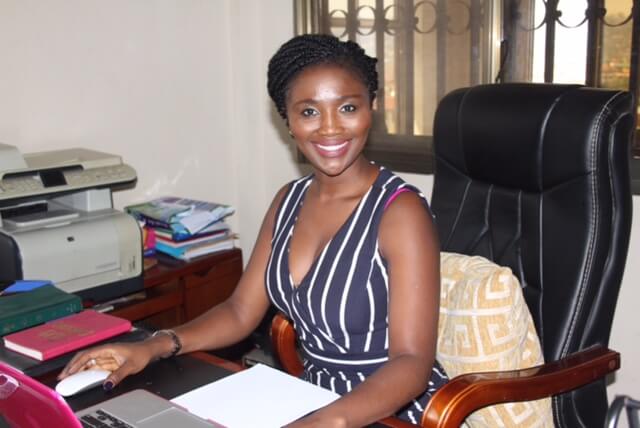
[bctt tweet=”Aminata Dumbuya: Opportunities abound in energy access. There are over 600 million Africans living without energy” username=”SheLeadsAfrica”] Aminata Dumbuya was living a privileged and comfortable job in California, USA. She had a cushy corporate job and was steadily climbing the corporate ladder. Yet, she was restless and hungry to do more. This hunger is what prompted her to return to her homeland, Sierra Leone. 12 years later, Aminata is deeply involved in the renewable energy sector. She runs the Sierra Leone Power for All campaign, which works with the support of the Ministry of Energy. When she’s not doing her part to ensure that sustainable energy is available to all, Aminata Dumbuya works with Masada Waste Management Company. Remember our list of unsexy business ideas that could make you money? Yeah, well with Masada, Aminata oversees the collection, management and conversion of waste to energy in Freetown, Sierra Leone. On top of that, Aminata owns Pinnacle Marketing Consultancy Group which supports businesses in specialised marketing. Tell us about running a campaign for an international organisation. Those are notoriously hard to get, any advice on other women interested in this field? Power for All is a global campaign that advocates for decentralised renewable energy as the fastest and most affordable way to energy access. It is steered by and has a partner coalition of civil society organisations and private companies that see energy access as imperative to ending energy poverty. I have been privileged and fortunate to be a part of this global team! I drive and run the Sierra Leone campaign by working with and supporting the government through the Ministry of Energy to enact policy. The private sector companies build the market; civil society organisations include energy access in their sustainable livelihood work. We are pushing awareness and behaviour change on the sector. [bctt tweet=”Aminata Dumbuya: Moving back home to me is to be part of the economical transformation happening on the continent” username=”SheLeadsAfrica”] With my previous work in the energy sector and dealings with both the government and private sector in the country, I was well-positioned to take advantage of this opportunity when it came up. Since I was prepared early on from my previous work, when the opportunity came, it was a match. My advice to women interested in the field is to look at the opportunities that abound in energy access. There are over 1.2 billion people globally without energy access, and of this 600 million live in sub-Saharan Africa. So with these appalling statistics, there are opportunities in this field to make real impactful change. My advice is, to engage early on with the relevant stakeholders, be it government and or civil society groups. Do necessary research in your locality on how energy access issues are handled, and then where there are opportunities for you, get involved. Also, having formal education and relevant work in the field will help as well. You currently run/are involved in many projects, can you tell us about them? Yes, I am. In addition to running the Power for All Campaign, I am also a partner and Project Manager for Masada Waste Management Company, SL, LTD. Masada entered into a contract with the Government of Sierra Leone in 2013, to collect, manage and convert waste to energy/electricity for the Municipality of Freetown. The company has over 300 employees and continues to grow. Masada represents and embodies my reason and purpose for moving back home; which is to be a part of the social and economical transformation happening on the continent. I also own and give strategic guidance and direction to Pinnacle Marketing Consultancy Group, (PMCG) a marketing firm that I started in 2008 with the focus of supporting businesses in specialised marketing and sales to build their brand and expanding their client base. And also, I own Business Services International (BSI), which is a serviced and virtual office outfit that provides office solutions to its clients. Are you ever worried about any conflict of interest in working with several businesses? If not, why? No. Since I was a teenager at the age of 16, I started off working 2-3 jobs while I was still schooling. Though part time, I still was able to diversify and work on several jobs then. Over the years, I have learned the art of delegation and managing effectively, and strategic partnerships. That has been the key for me in having several businesses and projects. Especially with the economical fluctuations as well as the myriad of opportunities that are in Africa, one must be agile and nimble to take advantage of them, if possible. I never believed in putting your eggs in one basket. Having a diversified revenue stream is very important as well. [bctt tweet=”Aminata Dumbuya: With the economical fluctuations, one must be agile & nimble to take advantage of opportunities” username=”SheLeadsAfrica”] What drove your decision to repatriate to Sierra Leone? Has much changed in the years you’ve been back? The single-most entity that was responsible for my move back home was and is the passion and conviction I attach to being a part of the transformation happening back home. I believed I was essential to that process, and that I can contribute in meaningful ways. I was opportune, privileged and comfortable back in California; with a cushy corporate job with high prospects of climbing the corporate ladder. Yet, I was restless, I was torn, I was hungry and wanted more. It was a spiritual calling, I needed to be living on purpose! That meant I had to be back home, in Sierra Leone. Has a lot changed over the 12 years I repatriated? Well, there is an adage that says, “the more things change, the more the stay the same” and that just about sums up my response to that question. There is still a whole lot to be done, the needle has yet to move in drastic ways that translate to an elevated social conscience. I still have hope that change
Ariana Oluwole: The idea for Narnia Daycare came after I gave birth to my son
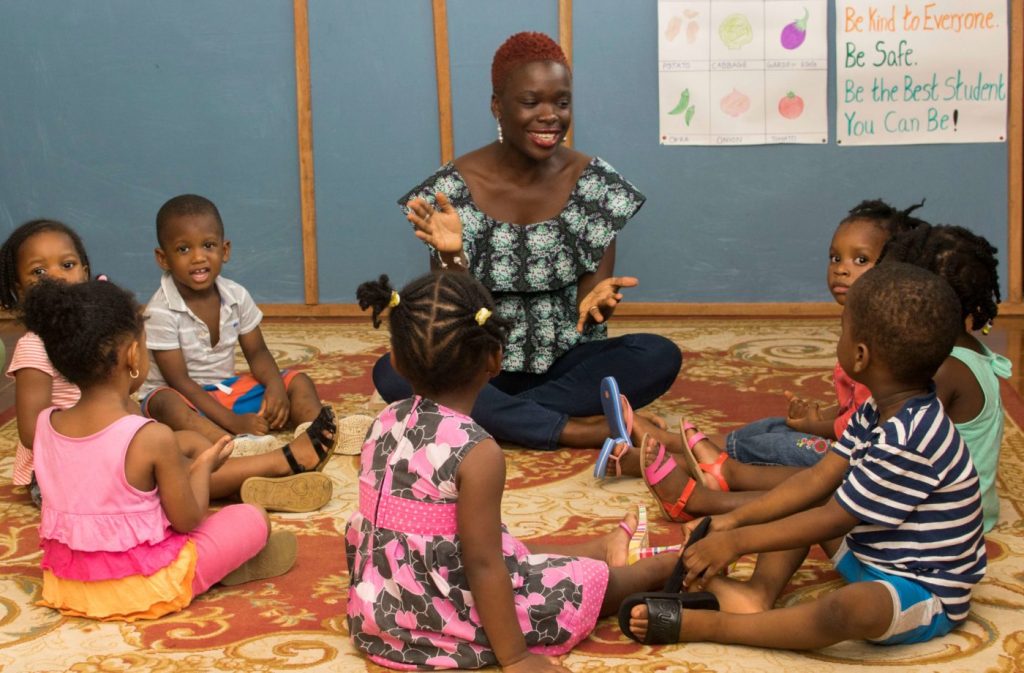
[bctt tweet=”Ariana Oluwole – Narnia Daycare was born out of a desire to cater to the needs of children” username=”SheLeadsAfrica”] When Ariana Oluwole shared tips on what you need to get into the caregiving business, she was speaking from experience. Ariana runs her own early-learning centre, Narnia Daycare in Freetown, Sierra Leone. When she became a mother, Ariana faced difficulties finding a daycare that would provide her son the spiritual, physical and intellectual care he needed. She also had to deal with balancing work with motherhood. Ariana turned her problem into a solution by starting Narnia Daycare regardless of her academic background in Biological Sciences. To make Narnia the answer for working families in Freetown, Ariana went on to acquire a diploma in early learning. Ariana Oluwole is making real her passion for making children holistically happy through Narnia. Why did you decide to start Narnia? How do you plan to ensure that Narnia’s standards remain consistent? Narnia Daycare was born out of a desire to cater to the needs of children; before birth, at birth; babyhood and toddler stages with a holistic approach. The idea for Narnia Daycare came to life after I gave birth to my son. As we all know, there are so many challenges a career woman faces after giving birth. Maternity leave is very short. Adapting to the routine and pressures of the workplace coupled with the endless thought about your child’s welfare when you are away…I saw the problem hundreds of working mothers and parents faced every day. I knew the values of social interactions in children and wanted my child to have a great start. So, I searched Freetown, looking for a beautiful place to enrol my child in. I wanted a place that would not only care about the physical but that would also be a place where spiritual and intellectual needs are met. Unfortunately, I couldn’t find anything that matched my expectations. Narnia was the most needed answer for working families. At Narnia, we have documented every process in our daily routine. We have a supervisor that ensures that everyone works within their roles. CCTV Surveillance not only helps in securing our space but helps track our work. We review the camera frequently to ascertain procedures are been followed at each point. Added to that, we have a proper reporting structure to maintain communication and follow up right through. We pay attention to details and review our standards to match the current needs of our clients. When you have a blue print for all of your processes, and clear expectations laid out for staff and customers, you are guaranteed a consistent output always. Your background is in the sciences. How did you bridge the gap between working in a field that is different from your academic background? WOW! I wish I had a straight answer to that myself. I always liked being around children, caring for them and making them happy even as a child myself. Therefore transitioning into the care-giving and educational field was not very difficult. In fact, I found great similarities between my field of study (Biological Sciences) as it covered the study of living things including man and its processes. This helped me with the knowledge of how cells, organs and systems function in the human body. [bctt tweet=”Ariana Oluwole found great similarities between her science degree and running a daycare centre ” username=”SheLeadsAfrica”] Combined with other vital modules, this added a deeper insight to my daily routine with the kids at the centre. I can tell if a child was undernourished by the bodily signs he/she exhibited. I can detect minor issues in development and growth, and bring this to the attention of the parent to refer for specialized help. Overall, a background in sciences provides you with the thirst for research, exploring systems and finding solutions. This has given Narnia an edge over its competitors in terms of been open to adapting to a changing environment and the learning needs of children. Besides, I have moved on in advancing a career in early learning having acquired a diploma in early learning with NTC educational program. As a writer, where do you find time to write with all your hustles? Writing is my hobby; it brings me so much joy and helps me relax. It’s like a soothing therapy. Interestingly, as long as I can open my eyes there is always some information that I record in my little notebook. During the weekends my most precious moments are spent writing. [bctt tweet=”Ariana Oluwole – In a fully rebuilt Sierra Leone, every child would be loved” username=”SheLeadsAfrica”] What do you imagine a fully rebuilt Sierra Leone will look like? A fully rebuilt Sierra Leone will be a society where the right questions are asked. It will be where the desire to solve problems is commonplace and the now high dependency on aid becomes one of independence and growth. There, an educated/well-informed farmer will have better alternatives to control pests and improve yield. An educated carpenter/well-informed carpenter would create furniture matching world class standards, the list of better opportunities would be endless. In that Sierra Leone, every child would be loved, they would have access to food, water, shelter and education. What life-changing principles do you believe all #MotherlandMoguls must have? All Motherland Moguls must have integrity. They must be open, honest and fair to oneself and to others. Make use of the golden rule too; do unto others the same that you want them to do unto you. Be open to CRITICISM, it helps you grow and be better. It helps you turn your weaknesses into strength and power. Also important is persistence, be ready for obstacles. Reach out for your highest dreams and if you FAIL; rise again and do it over. [bctt tweet=”Ariana Oluwole – Reach out for your highest dreams and if you FAIL; rise again and do it over” username=”SheLeadsAfrica”] What sort of motivational values should all young women be mindful of?
Christine Sesay: Africa’s Moneypreneur
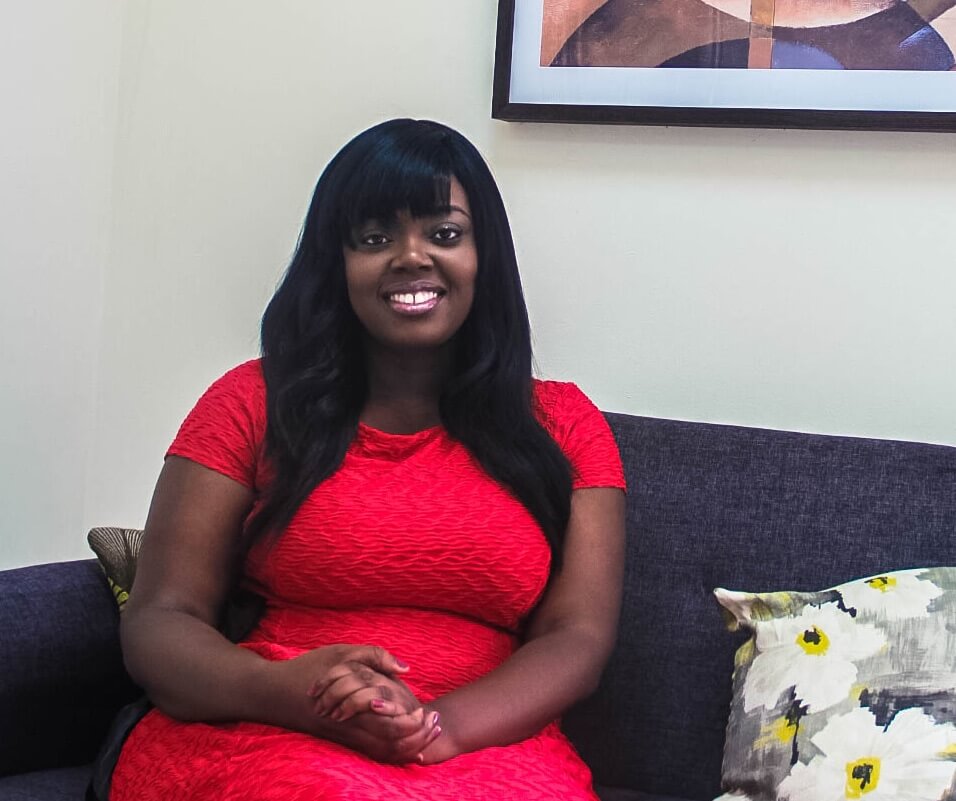
[bctt tweet=”Christine Sesay: Most Sierra Leonean entrepreneurs are struggling to survive, this lead to the idea of Africa’s Moneypreneur” username=”SheLeadsAfrica”] She won’t say money is her hobby but Christine Sesay enjoys advising people on finances. Christine is the founder and CEO of Africa’s Moneyprenuer, a financial education platform created to help make discussing money and finances easy and fun. With a background in accounting, Christine Sesay has always done some accounting —even when she wasn’t working in the field. Her professional interests have taken her across the African continent, Christine has lived in Niger among other countries. However, her career isn’t limited to finances, Christine also works with Sierra Leone’s Ministry of Health and Sanitation, an opportunity that arose during the Ebola epidemic in 2014. Why did you decide to study accounting? Like most high school graduates, there is the insecurity of being unsure of what one wants to do. I started taking an accounting course and enjoyed the different aspects of the course. From that point, I continued to pursue accounting and financial courses in school. I still work in the accounting field, I am in charge of operations in the organization I work and I am responsible for the finance department. Do you feel your careers have always been linked to your degree in accounting? Yes, in my current job I am responsible for all monthly financial accounts as well as final yearly accounts. In past jobs where I was not responsible for day-to-day running of the finance department, I have had budgets that I was expected to manage. Let’s talk about your time in Niamey, Niger. How was life for you as an African living in another African country? What sort of cultural barriers did you have to navigate? I enjoyed my time in Niamey. I have lived in other African countries while growing up and therefore it was no strange idea to move to Niger. So, I am used to living in different places and I adjust quickly to my environment. I found the environment quiet which suited my personality. It was a place ideal for doing my other hobbies such as arts and craft. Niamey had a few spots to hang out and most of the time we had curfews, so I had to find a form of entertainment that was workable. Niamey provided a lot of time I needed to quickly concentrate on communicating better in French but also to grow in my career. What was your main motivation to study French? I have a grandparent who is of Senegalese origin so it somewhere in my lineage. But also, I had a parent that worked in an environment that required the language. Therefore it was an easy motivation for me. How did you come to start working with the Ministry of Health and Sanitation? During the Ebola outbreak, a lot of foreign agencies came to help Sierra Leone and they all had different ways of doing things. The Ministry of Health was unable to determine the best course of action for the country. In the midst of other job offers outside Sierra Leone, I chose the job that avails me the opportunity to work with Ministry and assist with system thus strengthening it. [bctt tweet=”Christine Sesay: With the Ebola epidemic, I was determined to help in whatever way I could” username=”SheLeadsAfrica”] Why was it not an option for you to leave Sierra Leone when Ebola struck? Sierra Leone is my home. I was devastated to see how things had become within a short period of time with the disease infiltrating the country. Leaving the country at this time, would have been the easy way out. But then, what would I say to my children in the future? I was not in Sierra Leone for the war, and was much younger to make a decision to help. With the Ebola, I was determined to help in whatever way I could. [bctt tweet=”Christine Sesay: In the midst of other job offers outside Sierra Leone, I chose to work with the Ministry of Health” username=”SheLeadsAfrica”] Why did you start Africa’s Moneypreneur? In what ways can discussing money and finances be fun? While working in private sector, I would talk to small groups of women about their finances and advice on taxation issues. However, due to the demands of my job at the time, I could not continue. In 2015, I watched a lot of families leave Sierra Leone. This was mostly the middle class who could afford to leave Sierra Leone due to Ebola. Therefore, we have a very broken economy once again. Most entrepreneurs are struggling to survive, seeing this, the idea of Africa’s Moneypreneur was born. It is platform that teaches others how to implement effective financial strategies that support the lifestyle they aspire and deserve. For this reason, I am keen to talk to people on their money and finances. Would you say money is your hobby? Advising on finances is one of my hobbies. I also enjoy doing arts and crafts, especially making greeting cards. Want to see women you know featured on SLA? Tell us what amazing things women are doing in your communities here.
Yeniva Sisay-Sogbeh: You have a rare gift to share with the world
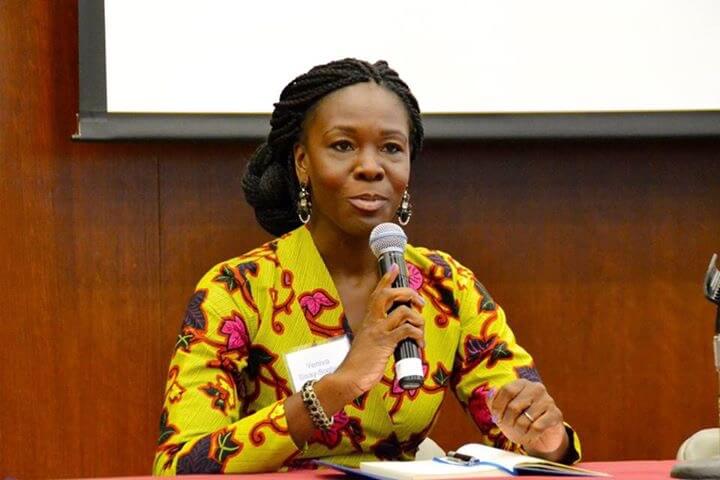
[bctt tweet=”Yeniva Sisay-Sogbeh of @EXCEL_SL is passionate about Sierra Leone with her leadership” username=”SheLeadsAfrica”] Picture a fully rebuilt Sierra Leone where every citizen has fulfilled their potential. Yeniva Sisay-Sogbeh is trying to make that a reality. A consultant and value creator, Yeniva is bringing change to her country through education and youth development. For Yeniva, what she does isn’t just a job. As a consultant, her goal is to create value for her clients and inspire people to expand their horizons. Yeniva also does this with her experience in youth development, she’s spent over 18 years in that sector. You call yourself a value creator, what does this mean? As a consultant, facilitation is at the heart of what I do. My work is to help programs, products, and people expand. I approach my work from a creative manner. What that means is throughout my career I have worked in education, training and development, marketing, facilitation and business development. These are very diverse experiences. I love what I do and I don’t just consider it just a job. In any one of my consultancy assignments, I have my goal to create value for my clients. By way of growth, capacity development, increase in sales, brand recognition, visibility or whatever the assignment may be, I show up to create and deliver value. The twist to being a consultant is you are with each client for a specific amount of time. It can be anywhere from 3 weeks to 3 years, so you have to be focused on the value creation you bring to the table in that set amount of time. [bctt tweet=”@iamyeniva – I teach to inspire people, especially young people to expand their horizons.” username=”SheLeadsAfrica”] Tell us about starting EXCEL Sierra Leone, what were the particular challenges you faced and how did you overcome them? I first began my work in youth development over 18 years ago. As a beneficiary of after school programs, I know the value of the life lessons I learned inside and outside of the classroom. Founded in 2007, EXCEL Sierra Leone (Educational Excellence, Community, Empowerment, Leadership —a community based organization CBO) has endeavoured to reach some of the most promising young people in Sierra Leone to participate in collaborative educational enrichment activities, programs and support services. EXCEL seeks to pioneer the transformation of the education system in Sierra Leone in order to develop a culture of academic excellence. This transformation focuses on empowering the next generation to become leaders, creatives, innovators, thinkers, and change-makers who are not only inspired, but in action to re-define Sierra Leone. We envision a Sierra Leone where everyone has an opportunity to fulfil their potential and achieve educational excellence. Running an organization comes along with many challenges, from staffing to keeping overheads low. I would say our biggest challenge however is finding the funding needed to support our programs and services. Many grants are focused on primary schools, girls child education etc, which are very important causes. However, I find that there are few geared towards secondary school students. We have had to remain creative, finding alternative ways of raising funds inside and outside of Sierra Leone. I have been determined not to allow these challenges to derail or discourage the team. We remain optimistic and seek assistance through partnerships and mentoring from other experienced organizations. What motivates you everyday? Getting up everyday and setting out towards my goal of and doing the work I love and enjoy. Knowing the work I do in the community, private sector or development; impacts my community and my country. That is powerful. I am also motivated by the shift that is happening on the continent and how people in the world see, view and respect Africa. That makes me proud and I am motivated to contribute to the shift. [bctt tweet=”Yeniva Sisay-Sogbeh: We envision a Sierra Leone where everyone can fulfil their potential” username=”SheLeadsAfrica”] Your mantra is “I teach to revive the heartbeat of a generation gone numb”, tell us the story behind this Being an educator is my passion. I teach to awaken the possibility that is in each of us. There is so much happening in the world and we see our youth growing up way before their time due to a variety of circumstances. I teach to inspire people, especially young people to expand their horizons. To revive the heart beat and thirst for change through education and excellence. My greatest wish is to see all of the young people I encounter #EXCEL. You’ve appeared in the documentary, “Am I too African to be American or too American to be African”, can you share how this experience was like? This was a dream come true. Being a first generation African in America, we have a unique experience and story to tell. It seems as though we have heard the Jewish- American, Asian-American, Latino- American story but never our own. It was such an honour to share my perspective and my story as a part of the cast. I think it is imperative that African women tell their own stories and through this film, I have been able to contribute to the discourse around what it means to be a part of both worlds. It is something I wanted to do for a long time so I am grateful for the opportunity. It has been awesome connecting with others just like me all across the world! Why do you think you were awarded the Young Fem-Leader at the Illumessence National Women Awards (INWA)? I was humbled by this great honour. To be recognized amongst some of the most powerful and inspirational women in my country blew me away. I have been a catalyst of many movements which advance opportunities for changing the narrative of the Sierra Leoenan’s especially woman and girls. As the founder of EXCEL Sierra Leone, many young people from the program have gone on to attend some of the best universities all over the world. As
Andrena Sawyer: Flexibility is key to increasing your business lifespan
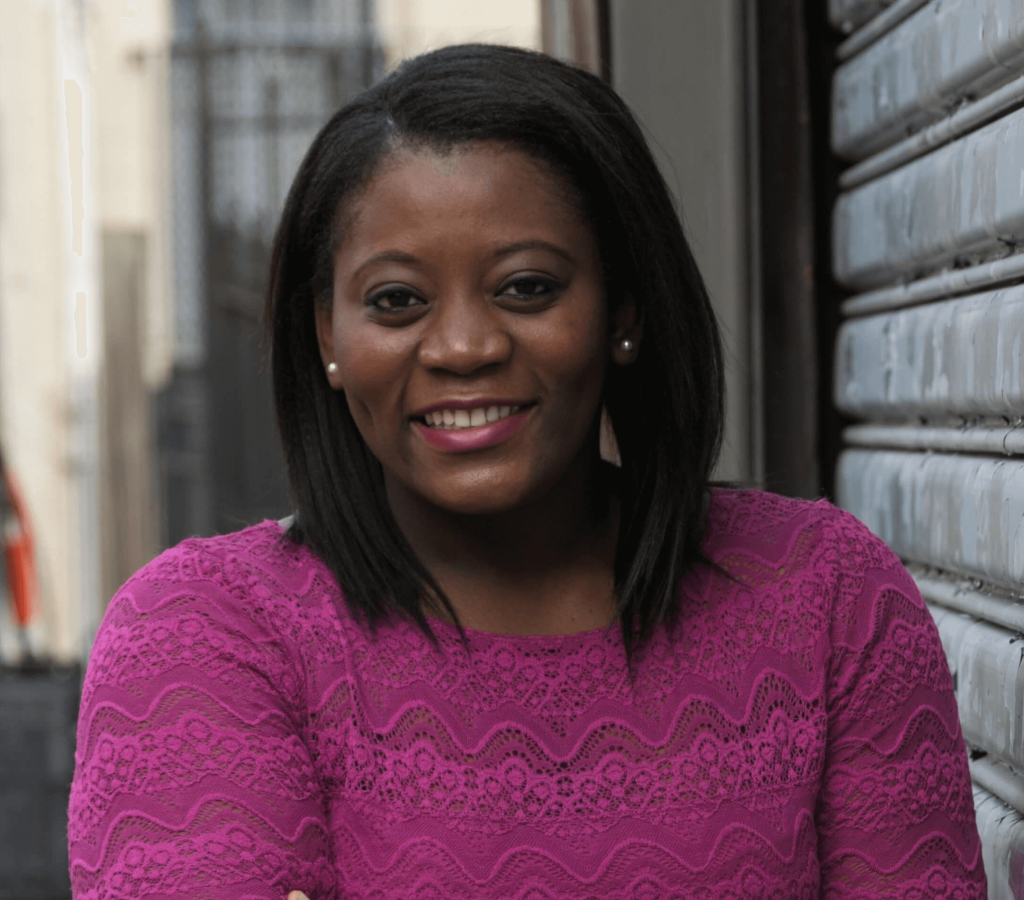
Start-ups sometimes need miracles to survive. Luckily there are superheroes who rise up to the challenge. Take Andrena Sawyer for example, she runs P.E.R.K. consulting an advisory firm that provides quality and affordable services for small to mid-sized nonprofits and businesses. Andrena is so effective at ensuring SMEs survive that in 2015, P.E.R.K. consulting, placed 1st in the AccelerateUp Business Growth Competition presented by the Maryland Small Business Development Center and Capital One Bank. This basically means that P.E.R.K consulting can serve as great model to new startups. When Andrena offered to share her story with SLA, we jumped at the opportunity. Get ready for actionable advice on overcoming funding challenges, lengthening your organisation’s lifespan and increasing revenue. Firstly how can SMEs overcome the juggernaut that is funding? Importantly, SMEs need to create effective business models that include strategies for cash flow management if they’re to navigate funding challenges. Cash flow challenges are inevitable for most start-ups, and many wait until a seeming crisis to develop a management plan. Creating a strategy before the need arises is essential for survival. In addition, it is important that SMEs have a compelling value proposition. As a Small Business Consultant, I meet passionate entrepreneurs with brilliant ideas, but the value ends at their passion. To survive the initial start-up years, the problem that a business solves should be clear to customers, investors, and partners. I firmly believe that the more informed stakeholders are, the more engaged they will be. How can organizations lengthen their lifespan? Simply, flexibility and innovation are the keys to organizations lengthening their lifespan. With the advent and increased use of social media, industries and consumers are rapidly changing. It has become more important now that founders remain flexible and informed of how their customers’ needs are changing. The focus should be on creating a culture where change is encouraged. Doing this can take an organization from a reactive to a proactive stance in marketing, capacity building, and revenue generation. How did you manage to increase P.E.R.K.’s revenue by 72.3% in one year? Primarily, the reason for the increase in revenue is that we identified our niche. When P.E.R.K. launched in 2013, I envisioned being all things to all clients. I desperately wanted my passion for community development to translate quickly to meet the needs of anyone that was interested. The challenge was that our customers were confused about our expertise, experience, and scope of work. Also, in our second year of operations, we started to refine our offerings to three key services. They include entity formation, business development, and capacity building support. This created a more targeted marketing approach, which allowed us to focus our efforts and ultimately bolster our credibility. Understanding our market also allowed us to conduct more accurate research. This helped to set competitive rates and create strategic partnerships with other key players in our industry. What advice will you give other startups looking to use P.E.R.K. as a model? There are two things I would say to startups looking to use us as a model: Be persistent. As cliché as it sounds, do not give up. Entrepreneurship can be extremely stressful, and founders may find that they initially encounter a lot of rejection. My advice is to do your due diligence by ensuring the idea is viable. Get the support of trusted mentors and advisors, and push through the challenges. Be creative. I once read that the average millionaire has about seven streams of income. There is a lesson to be learned there. If those who are thriving financially are always looking for ways to earn more, I believe that businesses can thrive in much the same way. For example, P.E.R.K. primarily provides consulting services. However, there are several other ways that we generate revenue including trainings and seminars, publications, and referrals through partnerships. As long as it is consistent with the business’ value proposition, there is no limit to how creative founders can get in generating revenue or reaching their audience. As a Sierra Leonean, are you engaged in any initiatives back home? Interestingly, even though I am not directly engaged in any initiatives in Sierra Leone, P.E.R.K. maintains a partnership with several organizations. These organizations help to mobilize young Sierra Leonean professionals in the United States and within the diaspora. In 2013, we helped launch the Sierra Leonean Empowerment Network. The network has since grown to include thousands of young professionals, many of whom are now working in Sierra Leone. Who will you say is the greatest African woman to have ever lived? Fortunately, there have been many great African women who have impacted the continent and the world. Women like Nana Yaa Asantewaa, Winnie Mandela, and Miriam Makeba immediately come to mind. However, I have been personally impacted by Leymah Gbowee’s story. As someone whose life was altered by the Liberian/Sierra Leone civil war, her story narrated in the documentary Pray the Devil Back to Hell reignited my passion for community work. Studying her work as a peacemaker who mobilized thousands of people in Liberia to put an end to the war compelled me to launch P.E.R.K. Consulting as a platform to support other change agents. Surprisingly, women like her are often thought of as just extraordinary. But her story challenged me to believe that any woman with a conviction and commitment can inspire a community to effect change. If you’d like to share your story with She Leads Africa, let us know more about you and your story here.
